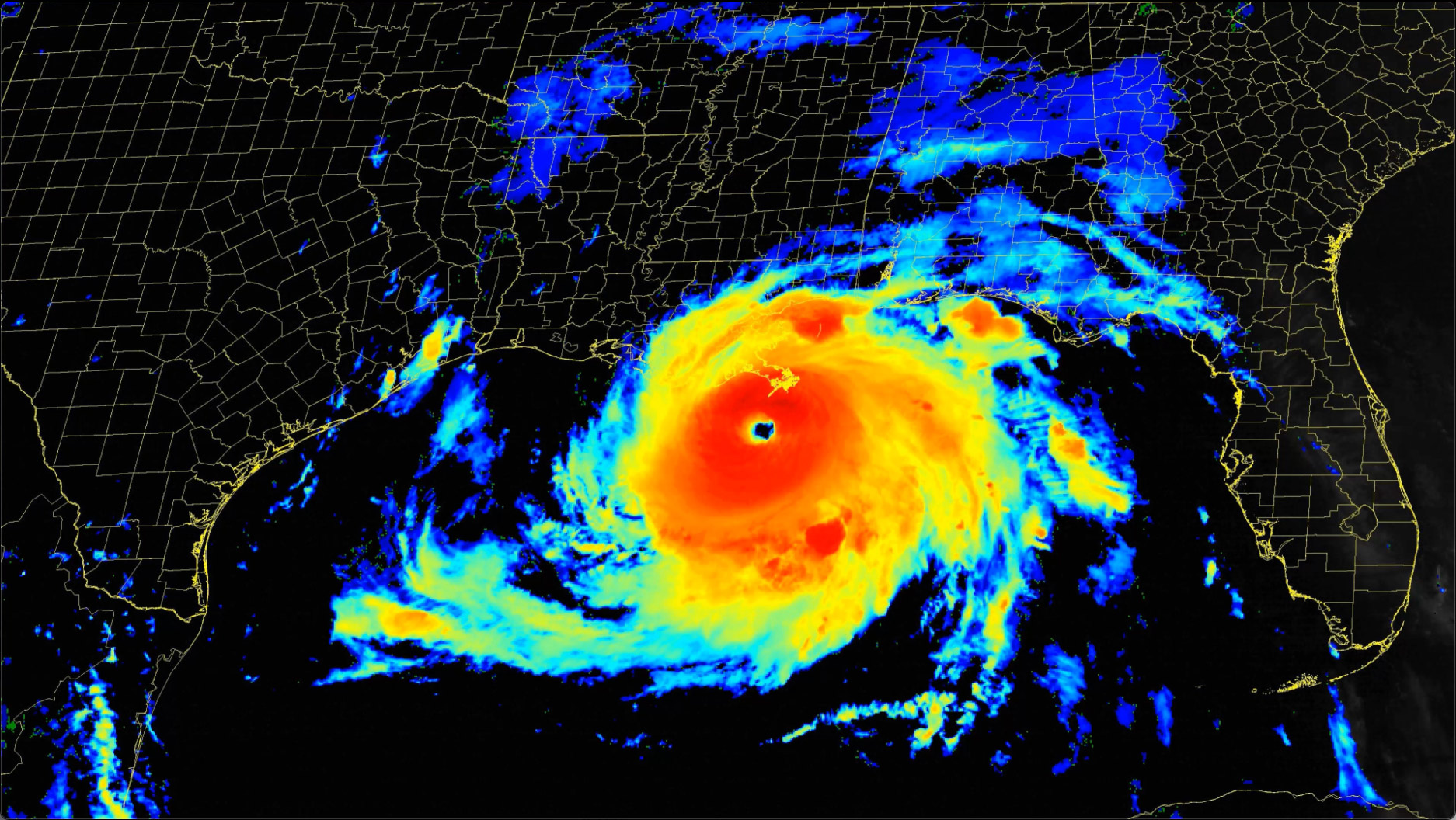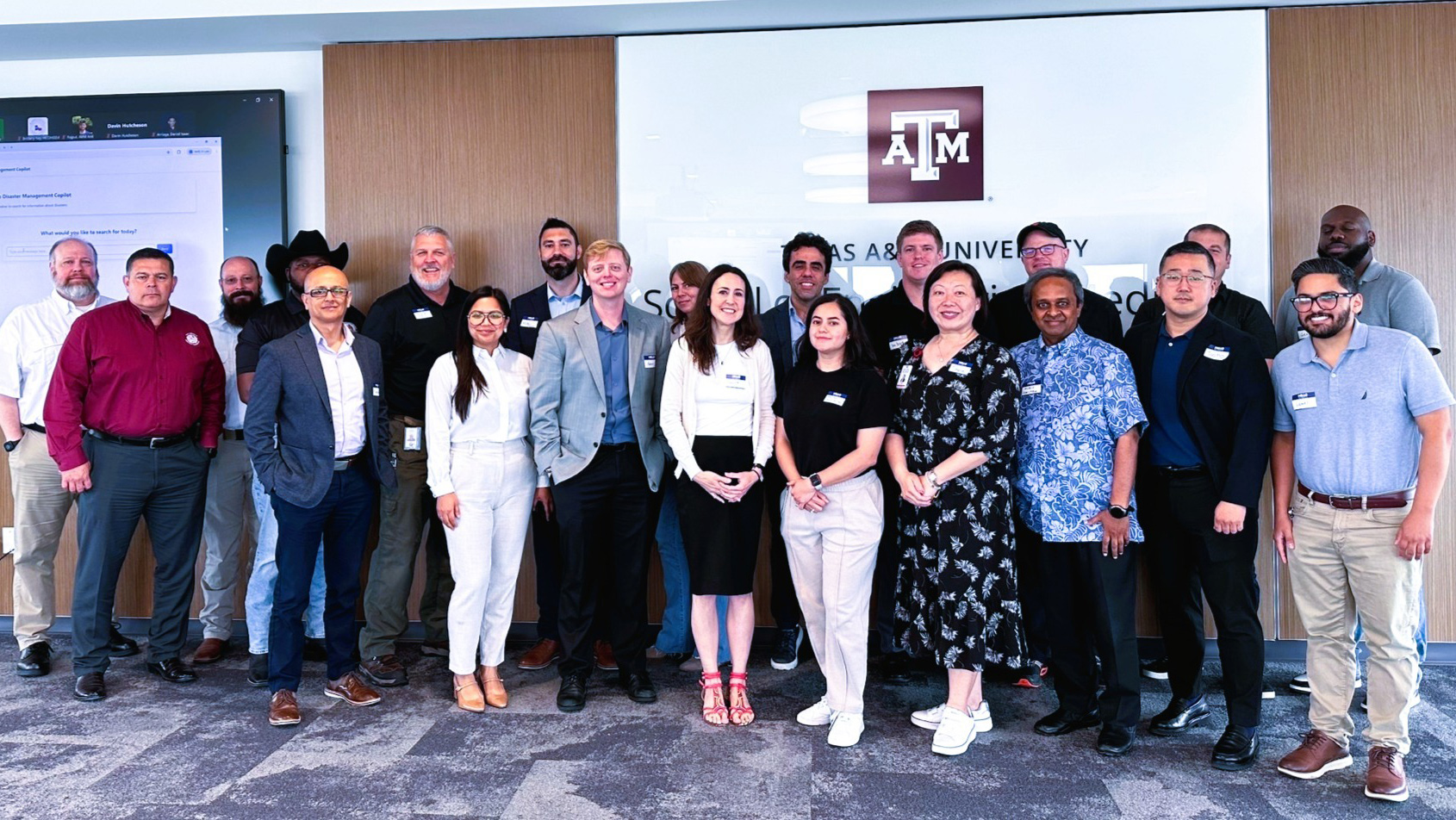
In Houston, TX, a city that knows hurricanes by name, Dr. Ali Mostafavi, professor of civil and environmental engineering at Texas A&M University and a core faculty of the Institute for a Disaster Resilient Texas (IDRT) gathered nearly 50 decision-makers to answer a pivotal question: How can next-generation AI and novel data streams help Texans better prepare and respond to the next disasters?
The one-day AI for Hurricane Preparedness workshop — organized in collaboration with Direct Relief, Meta and Texas A&M — united emergency managers from the Texas Department of Emergency Management, Harris County’s and the City of Houston’s public health leaders, community clinics, tech partners from Meta’s Data for Good program, and researchers from Texas A&M. Together they explored AI models that can augment situational awareness during critical hours of crises.
“Texas is ground zero in this country for disasters, and we strive to be ground zero for advanced solutions,” Mostafavi told the group. “Artificial intelligence can serve as the next line of defense for our communities — an always-awake sentinel that transforms raw, real-time data into actionable situational awareness during the most critical hours of a disaster.”
Mostafavi presented the latest research and technologies from his lab, UrbanResilience.AI Lab, and the IDRT to the participants. The technologies discussed included multi-modal AI systems for augmenting resilience capabilities and situational awareness across all hazard stages. His team has developed a comprehensive suite of AI-driven solutions, encompassing near-real-time evacuation forecasting and monitoring, community-lifeline monitoring systems, automated damage assessment models, power outage prediction tools, recovery progress trackers, and LLM-based disaster management companions.

During the workshop, conversations centered on harnessing emerging data sources to feed machine-learning models that can enhance situational awareness. Each idea underscored the workshop’s core message: better data, faster insight, smarter decisions.
The participants also observed a demo of IDRT’s core platform, Texas Disaster Information System (TDIS). Established by the Texas Legislature, IDRT is charged with transforming cutting-edge science into everyday resilience tools. With initiatives like the TDIS, the institute is positioning Texas as both the nation’s disaster test bed and its innovation hub.
Participants spanned the full spectrum of disaster response, including the Texas Division of Emergency Management, Harris County Public Health, Harris County Office of Homeland Security & Emergency Management, and the Houston Mayor’s Office of Public Safety and Homeland Security. Attendees from healthcare and community resilience included the Texas Association of Community Health Centers, Legacy Community Health, Avenue 360, HOPE Clinic and Vibrance Texas. Also in attendance were Meta’s Data for Good and Direct Relief’s CrisisReady teams. Researchers from Mostafavi’s lab and the IDRT showcased technology already being piloted in recent disasters.
“This workshop is one of the first steps,” Mostafavi said in closing. “We’re building a cross-sector working group of state and local emergency managers, private sector entities and NGOs that will grow, evolve and — most importantly — turn these ideas and AI technologies into real tools that will save lives during future disasters in Texas and across the nation.”